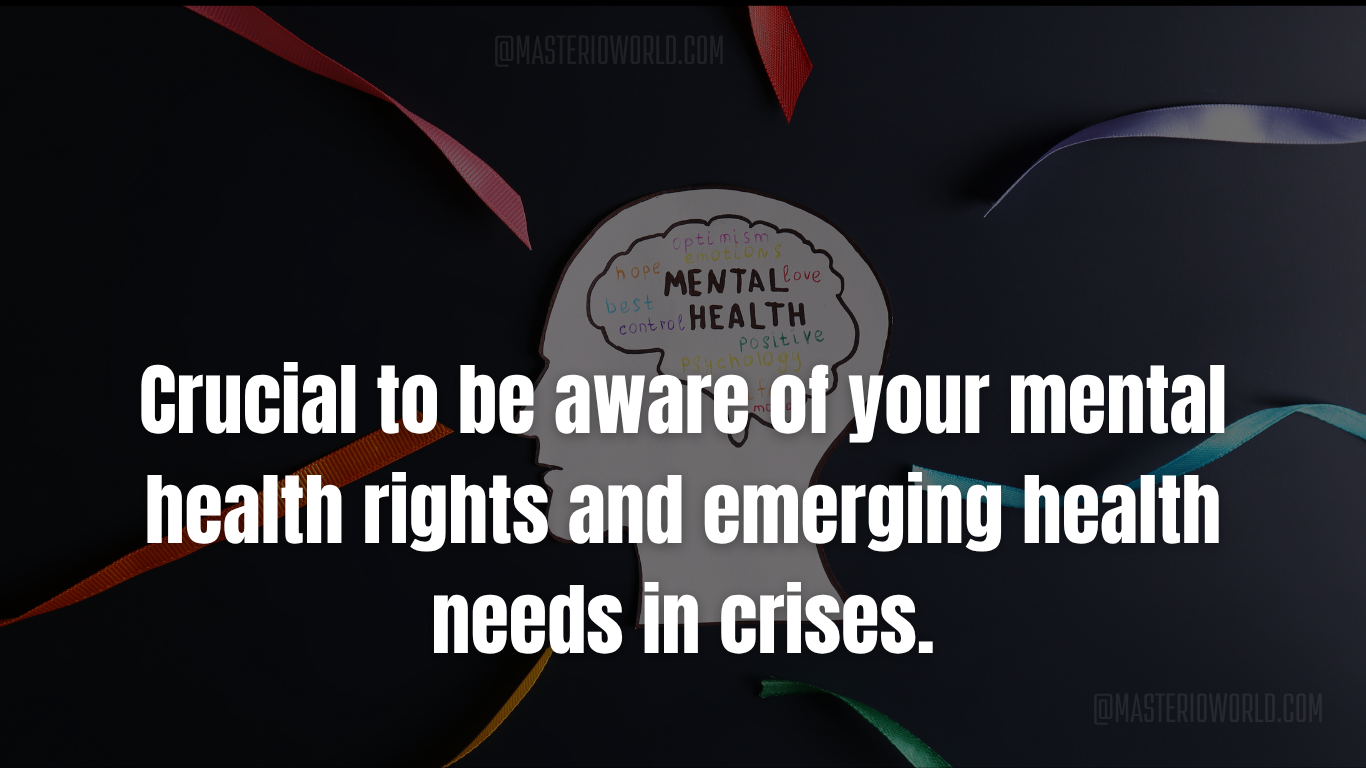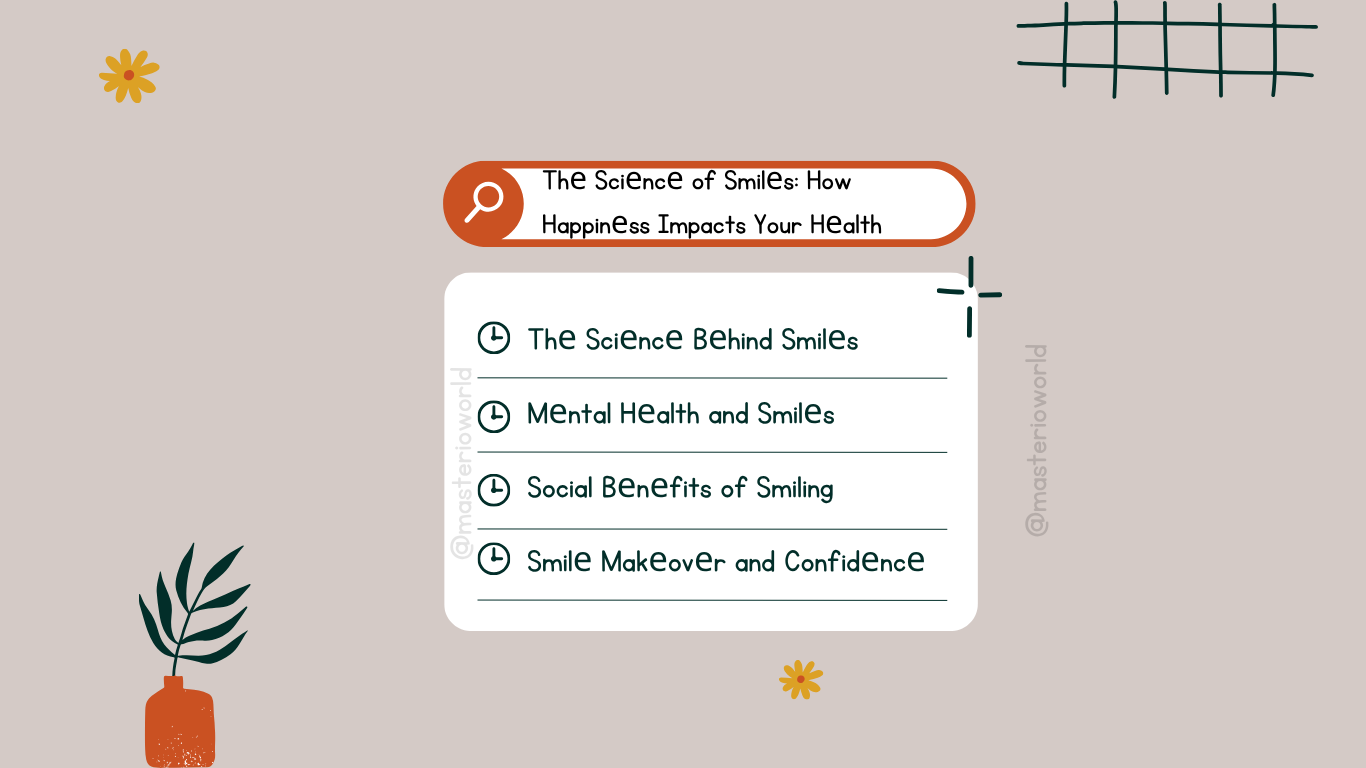Crucial to be aware of your mental health rights and emerging health needs in crises.
Crucial to be aware of your mental health rights and emerging health needs in crises. Introduction Mental health rights are a critical aspect of ensuring the well-being and dignity of individuals facing mental health challenges, especially during times of crisis. These rights include a range of legal and ethical principles that aim to safeguard the autonomy, privacy, and access to quality care for people with mental health conditions. Understanding mental health rights is crucial as it empowers individuals to make informed decisions about their treatment, participate in their recovery process, and advocate for their needs. During times of crisis, such as natural disasters, pandemics, or humanitarian emergencies, the importance of mental health rights becomes even more pronounced. The stress, trauma, and disruptions caused by crises can exacerbate mental health issues, making it essential for individuals to be aware of their rights and available resources. Educate Yourself about Your Rights: It’s essential to understand your rights regarding mental health treatment and privacy. This includes knowing that you have the right to consent to or refuse treatment, the right to confidentiality in therapy sessions, and the right to participate in decisions about your care. Seek Information from Reliable Sources: To gain a deeper understanding of your mental health rights, seek information from reputable sources such as mental health organizations and legal advisors. These resources can provide valuable insights into relevant laws, policies, and procedures. Stay Informed about Changes: Mental health policies and regulations can evolve over time. Stay informed about any changes or updates in mental health laws to ensure that you are aware of your rights and responsibilities. Understanding Emerging Health Needs in Crises: Crises have a significant impact on mental health, creating heightened levels of stress, anxiety, fear, and uncertainty. Loss of livelihood, social isolation, trauma, and limited access to healthcare services are some of the factors that can contribute to the emergence or worsening of mental health conditions during crises. To address emerging mental health needs in crises, a comprehensive approach is necessary. This includes early identification of symptoms, prioritizing mental health support services, promoting resilience-building activities, and fostering community support networks. It is essential for individuals, communities, and healthcare systems to collaborate effectively to meet these evolving mental health challenges. Recognize Signs of Mental Health Challenges: During crises, such as natural disasters or pandemics, it’s crucial to recognize the signs of mental health challenges. These signs may include increased stress, anxiety, depression, insomnia, or changes in behavior. Prioritize Self-Care: Engage in self-care practices to maintain your mental well-being during crises. This may include practicing mindfulness, staying physically active, getting enough rest, and seeking social support from friends and family. Advocate for Accessible Services: Advocate for accessible mental health services and resources in crisis situations. This includes promoting the availability of telehealth services, crisis hotlines, community support programs, and affordable mental health care options. Legal Framework and Protections: The legal framework that governs mental health rights plays a critical role in ensuring that individuals receive fair and respectful treatment. Laws and regulations related to mental health address various issues such as confidentiality, informed consent, involuntary treatment, anti-discrimination, and access to mental health services. It is crucial for both mental health patients and healthcare providers to understand these legal obligations and protections. Patients have the right to privacy and confidentiality regarding their medical information, as well as the right to participate in decisions about their treatment plan. Healthcare providers must follow ethical guidelines and legal requirements to provide safe, effective, and culturally competent care to individuals with mental health conditions. Familiarize Yourself with Mental Health Laws: Take the time to familiarize yourself with mental health laws in your region or country. This includes understanding laws related to confidentiality, informed consent, involuntary treatment, patient rights, and anti-discrimination. Know How to Access Legal Assistance: If you believe that your mental health rights have been violated, know how to access legal assistance or advocacy services. This may involve contacting legal aid organizations, mental health advocacy groups, or seeking guidance from legal professionals specializing in mental health law. Stay Updated on Legal Developments: Laws and regulations pertaining to mental health rights can change. Stay updated on legal developments, court rulings, and policy changes that may impact mental health patients’ rights and access to care. Advocacy and Support Systems: Advocacy plays a crucial role in creating awareness about mental health, reducing stigma, and advocating for policy reforms that ensure mental health rights. Advocacy efforts can take different forms, from local community initiatives to national campaigns aimed at raising public awareness, shaping legislation and policies, and improving access to mental health services. Support systems are essential for individuals experiencing mental health challenges. These systems include peer support groups, helplines, counseling services, and community-based organizations. They offer emotional support, information, resources, and referrals to appropriate healthcare services. Peer support groups provide individuals with an opportunity to connect with others who share similar experiences and offer mutual support and encouragement. Helplines offer round-the-clock support, providing a listening ear and guidance to callers. Counseling services offer a safe and confidential space for individuals to explore their feelings and experiences and receive professional support. Community-based organizations provide access to resources, education, and advocacy for individuals and families affected by mental health challenges. Join Mental Health Advocacy Groups: Consider joining mental health advocacy groups or organizations that work to promote mental health awareness, education, and policy reform. Participating in advocacy efforts can help amplify voices, raise awareness, and drive positive change in mental health policies and services. Utilize Support Systems: Take advantage of support systems such as helplines, support groups, counseling services, and peer-to-peer networks. These resources offer emotional support, information, coping strategies, and connections to professional help when needed. Encourage Open Conversations: Foster open and honest conversations about mental health to reduce stigma and promote understanding. By sharing personal experiences, educating others, and advocating for inclusivity and empathy, we can create a more supportive and accepting environment for everyone. Conclusion It is essential to recognize the intersection … Read more


